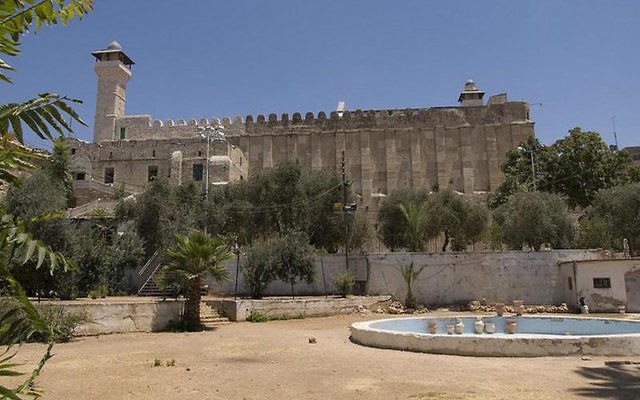UNESCO’s Hebron decision an ‘affront to history’
The UN’s cultural body is being accused of rewriting history again, after declaring that Hebron is a “Palestinian World Heritage site in danger,” writes Nathan Jeffay.
The UN’s cultural body is being accused of rewriting history again, after declaring that Hebron is a “Palestinian World Heritage site in danger,” writes Nathan Jeffay.
ISRAEL’s Prime Minister Benjamin Netanyahu decried the “delusional resolution” at Sunday’s cabinet meeting, and responded by cutting $1.3 million from Israel’s funding to UNESCO. He will hand the money to a Jewish history museum that is being built in Hebron, where displays are expected to highlight that the city is the burial place of Jewish patriarchs and matriarchs and has a long history of Jewish presence.
Australia doesn’t sit on the heritage committee that approved the resolution, but did speak up during the UNESCO session just after it was passed – making the sharpest comments of any county present other than Israel. Canberra’s ambassador to UNESCO Angus Mackenzie took to the podium and said that the resolution is “harmful” to Israeli–Palestinian relations and “damaging” to UNESCO.
He said that Australia “regrets” the decision and the “damaging way in which it was reached”, and commented: “We are concerned that the heavily politicised and unbalanced language in these resolutions continue to be seen to alter the status quo at Islamic, Jewish and Christian holy sites and are not consistent with the effort to preserve the outstanding universal values of these sites.”
US ambassador to the UN Nikki Haley called the UNESCO decision “an affront to history”. The resolution was carried by 12 votes to three, with six abstaining.
The UNESCO vote came a few days after a resolution that echoed UNESCO’s past rejection of Israeli sovereignty over Jerusalem, and a year and a half after two controversial resolutions downplaying Jewish connections to Jerusalem in what many Jews considered historical revisionism.
Shimon Samuels, the only representative of Diaspora Jewry to speak at the latest UNESCO session, told The AJN afterwards: “This is part and parcel of the deletion of Jewish and Christian connections to religious sites.” He said that there appears to be a “wish list” of religious sites which the Palestinians and their allies seek to redefine as exclusively Muslim.
Samuels used his speech at UNESCO to hit out at the “ravages on Jewish affinity to Jerusalem and the Cave of the Patriarchs in Hebron”.
The text about Hebron that was originally to be taken to UNESCO presented the city, and its main religious centre – the Cave of the Patriarchs where Jews worship and the adjacent Ibrahimi Mosque – as multicultural. It discussed the “heritage values of Judaism, Christianity and Islam”. But the text that was brought in the end for voting was changed by Lebanon, Kuwait and Tunisia to remove the reference to different religions, and focused instead on lambasting Israel as the “occupying power” and categorising Hebron as “in danger”.
Samuels’ organisation, the Simon Wiesenthal Centre, is the only Jewish organisation accredited to take part in UNESCO meetings, but several other Diaspora groups expressed their outrage. Ronald Lauder, President of the World Jewish Congress, said the resolution is the “latest Palestinian attempt to exploit the UN for political manipulation”.
Lauder said it constitutes a “subversive attempt to rewrite history and deem the Old City of Hebron as a Muslim-Palestinian site alone while denying its historic and religious importance to Jews and Christians”.
Palestinian Authority politicians were delighted by the Hebron vote, and the earlier Jerusalem resolution, especially as they are embroiled in a bitter row with their rivals in Hamas and desperate for positive publicity in their media. The UNESCO session is testament to the “successful diplomatic battle Palestine has launched on all fronts”, said the Palestinian Authority’s Foreign Minister Riad al-Malki.
The Palestinian Tourism Minister Rula Ma’ayah called the Hebron vote a “historic event” and said that it “emphasises the identity of Hebron and the Ibrahimi Mosque, that it belongs to its heritage and history of the Palestinian people”.
NATHAN JEFFAY


comments